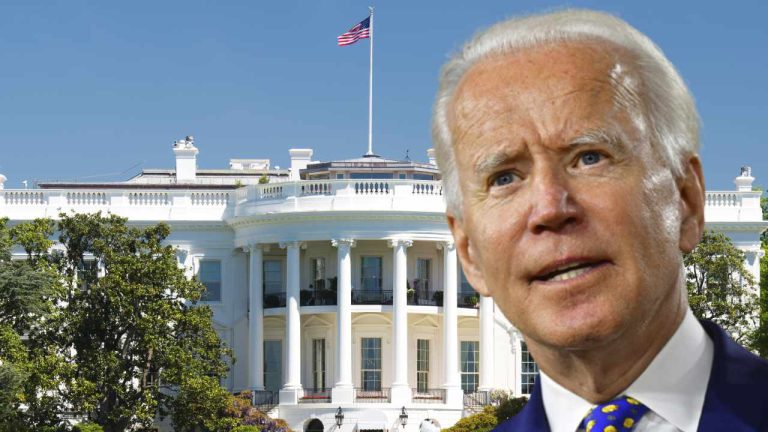
The White House has published a “roadmap to mitigate cryptocurrencies’ risks.” The roadmap calls for authorities to “ramp up enforcement where appropriate” and Congress “to step up its efforts” to regulate the crypto sector. It also notes that legislation should not greenlight mainstream institutions “to dive headlong into cryptocurrency markets.”
‘The Administration’s Roadmap to Mitigate Cryptocurrencies’ Risks’
The White House published a blog post titled “The Administration’s Roadmap to Mitigate Cryptocurrencies’ Risks” Friday under the National Economic Council (NEC), an Executive Office of the President (EOP) established to advise the president on U.S. and global economic policy.
The roadmap is authored by four White House advisors: NEC Director Brian Deese, Office of Science and Technology Policy (OSTP) Director Arati Prabhakar, Council of Economic Advisers (CEA) Chair Cecilia Rouse, and National Security Advisor Jake Sullivan. The CEA is charged with providing objective economic advice on the formulation of both domestic and international economic policy while the OSTP advises the president on all matters related to science and technology.
The White House advisors detailed:
At President Biden’s direction, we have spent the past year identifying the risks of cryptocurrencies and acting to mitigate them using the authorities that the Executive Branch has.
“Experts across the administration have laid out the first-ever framework for developing digital assets in a safe, responsible way while addressing the risks they pose,” they added.
The framework identifies a number of risks, including crypto entities ignoring applicable financial regulations and basic risk controls, misleading consumers, having conflicts of interest, providing inadequate disclosures, and committing outright fraud. Moreover, the authors claimed that “there is poor cybersecurity across the industry” that has enabled North Korea to “steal over a billion dollars to fund its aggressive missile program.”
While encouraging regulators to continue “using their authorities to ramp up enforcement where appropriate and issue new guidance where needed,” the roadmap authors stressed:
The events of the past year underscore that more is needed. Agencies have redoubled their efforts to fight fraud … Enforcement agencies are devoting increased resources to combatting illicit activities involving digital assets.
“In the coming months, the Administration will also unveil priorities for digital assets research and development, which will help the technologies powering cryptocurrencies protect consumers by default,” they revealed.
Congress Needs to ‘Step up Its Efforts’ to Regulate Crypto
The roadmap also calls on Congress to “step up its efforts” in regulating the crypto sector, such as expanding regulators’ powers to prevent misuse of customer assets and mitigate conflicts of interest.
The White House advisors suggested that Congress could also strengthen transparency and disclosure requirements for cryptocurrency firms, increase penalties for violating illicit-finance rules, and subject crypto intermediaries to bans against tipping off criminals. However, they cautioned:
Legislation should not greenlight mainstream institutions, like pension funds, to dive headlong into cryptocurrency markets.
The advisors explained that the limited exposure of traditional financial institutions to crypto over the past year has prevented turmoil in the crypto market from affecting the broader financial system.
In conclusion, they emphasized:
The Administration wholeheartedly supports responsible technological innovations that make financial services cheaper, faster, safer, and more accessible.
Nonetheless, the roadmap authors noted that “to realize these benefits, new technologies need commensurate safeguards,” elaborating: “To put the right safeguards in place, we will keep driving forward the digital-assets framework we’ve developed, while working with Congress to achieve these goals.”
What do you think about the White House advisors’ roadmap to mitigate crypto risks? Let us know in the comments section below.
from Bitcoin News https://ift.tt/H5vPeZp
Comments
Post a Comment